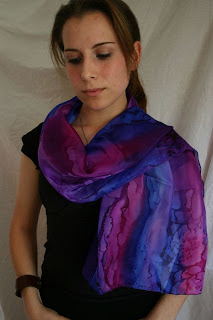
We found a great blog which explains all about Galilee Silks most popular marketed garment: The Talit. We especcialy liked the following post about blessing the Tallis
The Jews do not believe in the blessing of their garments and ornaments by their Rabbi, or the Jew’s religious teacher or master. This is significantly different from other religions, particularly Catholicism, which practices the blessing of items, from those related to their religious practice (such as the Bible) to other items and material possessions. This applies to the use of their tallit or their prayer shawl. The tallitot are not blessed by the Rabbi, although Jews can get such prayer shawls at the synagogue before praying. Because of this, one can buy tallilot anywhere.
However, the Jews do believe that they themselves should bless their tallits. This is a form of their respect to this sacred garment. This practice is actually included in their mitzvah, hence the importance they place on the prayer shawl. Although it is the tzitzit (or the fringes on the prayer shawl) and not the tallit that the Jews are required to wear, it still plays a pivotal role in their religious practice. So it is not surprising that the Jews take the effort to say a prayer or a blessing before wearing the tallit or the prayer shawl.
The blessings are done every time one uses the tallit. First, one takes his or her tallit from the tallit bag, unfolds the prayer shawl carefully, and recites a blessing, which, in essence, acknowledges God who sanctifies His people with the commandments and commands them regarding the use of the tzitzit. After which, one puts the tallit or the tallis on and recites a prayer similar to the first one, although it cites the commandment of wrapping one’s selves in the tzitzit. The second prayer is written on the atarah of the tallit or tallis.
After the tallit has been worn and the prayer has been said, one should then kiss the atarah’s end (or where the last word of the said prayer is embroidered). He or she then kisses the beginning of the atarah (or where the first word of the prater is embroidered). The individual should then wrap the prayer shawl around his or her shoulders, holding the tallit over the head for a brief moment of meditation. At this point, praying a verse of the book of Psalms can be done, although this is not required.
There are a number of rules regarding the reciting of prayer after wearing the tallit. If the person removes a particular tallit and uses a new one, he is required to say the blessing again. The same applies when the person removes the tallit without the intention of praying and using the tallit again. However, if he or she removes it with the intention of putting it back on, this individual can wear the tallit without reciting the blessing.

Not to mention we warmly recommend you to visit our own online Galilee Silks stores and look at our beautiful Jewish prayer Shawls! Happy Hanukkah!!





